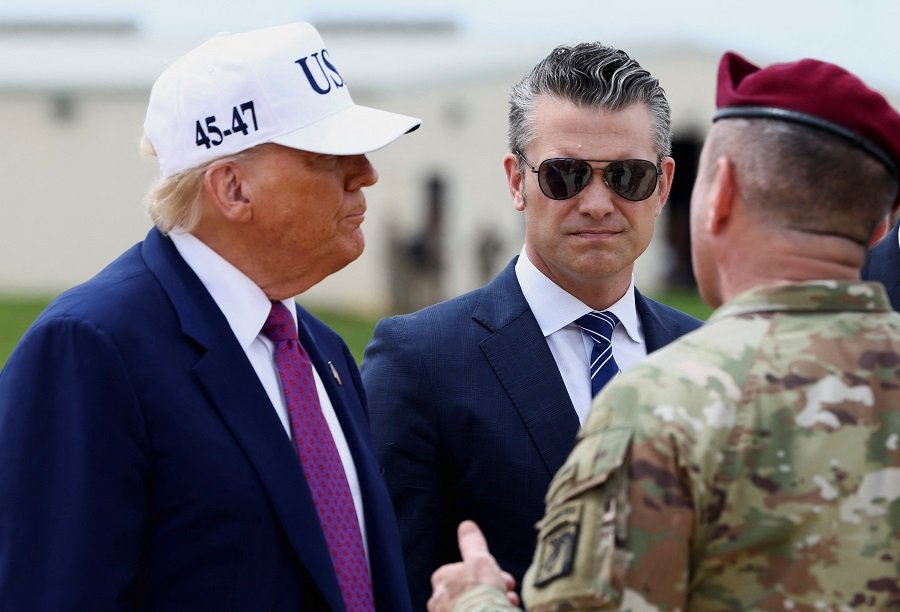Israeli Preparations for Strike on Iran's Nuclear Facilities—President Trump Orders U.S. Diplomats to Withdraw from the Middle East
According to Washington and European intelligence sources, Israel is preparing to launch a strike on Iran’s nuclear facilities in the near future. If this attack occurs, tensions across the Middle East could reach a boiling point, severely damaging ongoing diplomatic efforts regarding Iran’s nuclear issue.
Israeli Preparations for Strike on Iran's Nuclear Facilities—President Trump Orders U.S. Diplomats to Withdraw from the Middle East
Israeli Preparations for Strike on Iran's Nuclear Facilities—President Trump Orders U.S. Diplomats to Withdraw from the Middle East
According to Washington and European intelligence sources, Israel is preparing to launch a strike on Iran’s nuclear facilities in the near future. If this attack occurs, tensions across the Middle East could reach a boiling point, severely damaging ongoing diplomatic efforts regarding Iran’s nuclear issue.
In anticipation of this potential conflict, the United States on Wednesday withdrew its diplomats from Iraq and authorized the voluntary departure of military family members stationed in several Middle Eastern countries, including Bahrain and Kuwait.
Netanyahu’s Pressure and Trump’s Indecision
For the past several months, Israeli Prime Minister Benjamin Netanyahu has been pressuring President Trump to capitalize on Iran’s perceived weakness and authorize a strike. Although Trump previously rejected such a proposal, it is currently unclear how much resistance he is offering. Iran has already declined a proposal for dialogue, which has disappointed the Trump administration.
Iran’s Counter-Preparation
A senior Iranian official has stated that if attacked, Iran will retaliate by launching hundreds of ballistic missiles at Israel. During the Gaza war in 2024, a similar Iranian strike was partially intercepted, though it still caused some damage. This time, the retaliation could be far more intense.
U.S. Military Readiness
The U.S. aircraft carrier USS Carl Vinson is currently positioned in the Arabian Sea, carrying more than 60 combat aircraft, including F-35 stealth jets. Additionally, several dozen warplanes have been placed on standby in the Middle East, potentially to assist Israel’s defense.
International Diplomatic Pressure
At the ongoing board meeting of the International Atomic Energy Agency (IAEA) in Vienna, the U.S., U.K., France, and Germany have proposed a resolution against Iran, which will be voted on Thursday. If passed, this could lead to the reimposition of sanctions under the 2015 nuclear agreement framework.
Iranian Foreign Minister Abbas Araghchi has warned that such actions would compel Iran to deliver a "firm response."
Military Planning and Congressional Concerns
U.S. Army Chief General Michael E. Kurilla admitted before Congress that he has presented “extensive options” for a potential strike on Iran to President Trump. Although his testimony was postponed on Thursday, Iran has interpreted his remarks as “military aggression.”
Oil Market Reaction
Tensions have sparked volatility in the oil markets. On Wednesday, the price of crude oil in the U.S. rose to $68 per barrel, the highest since April. A full-scale war could severely disrupt oil supply chains.










